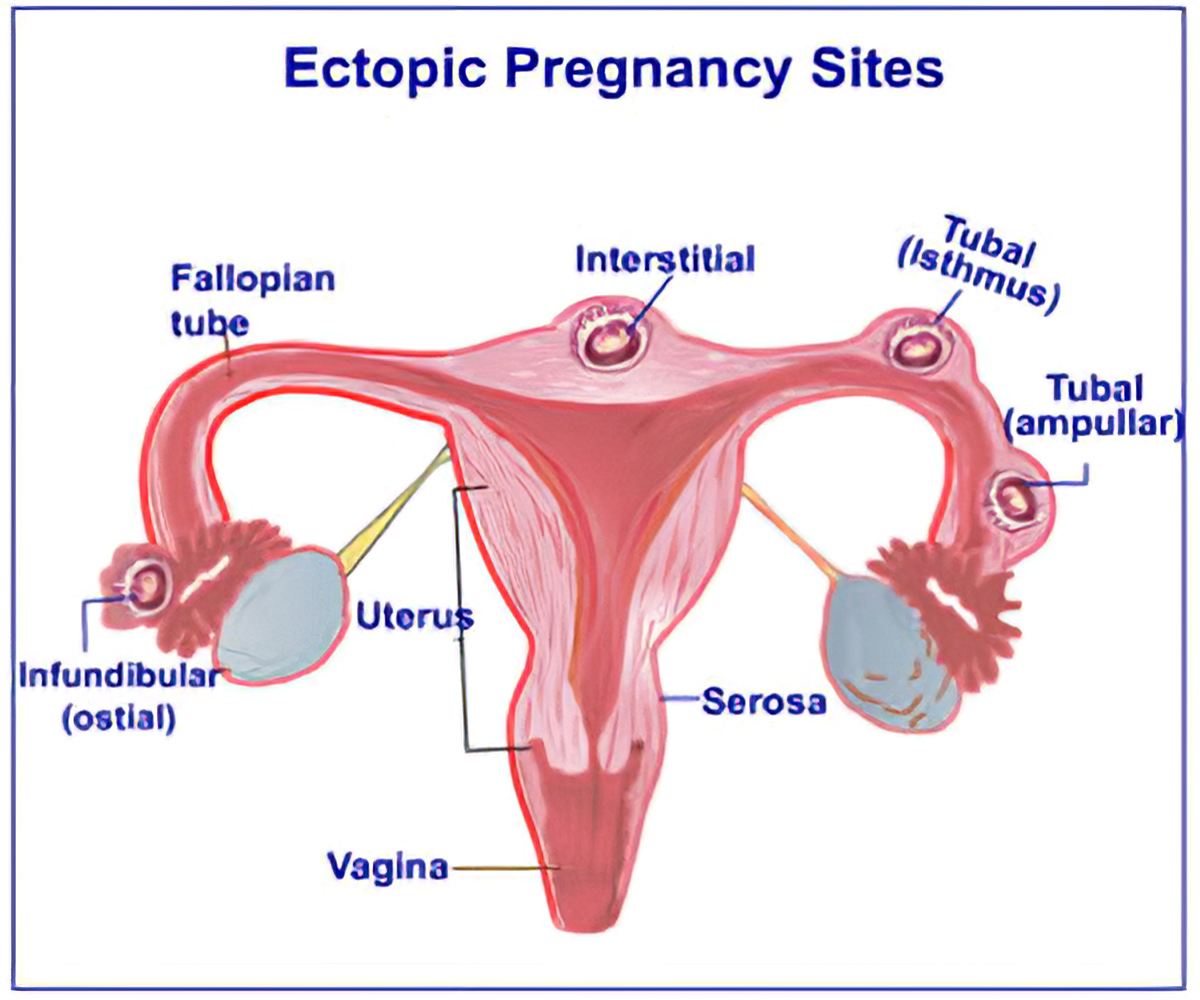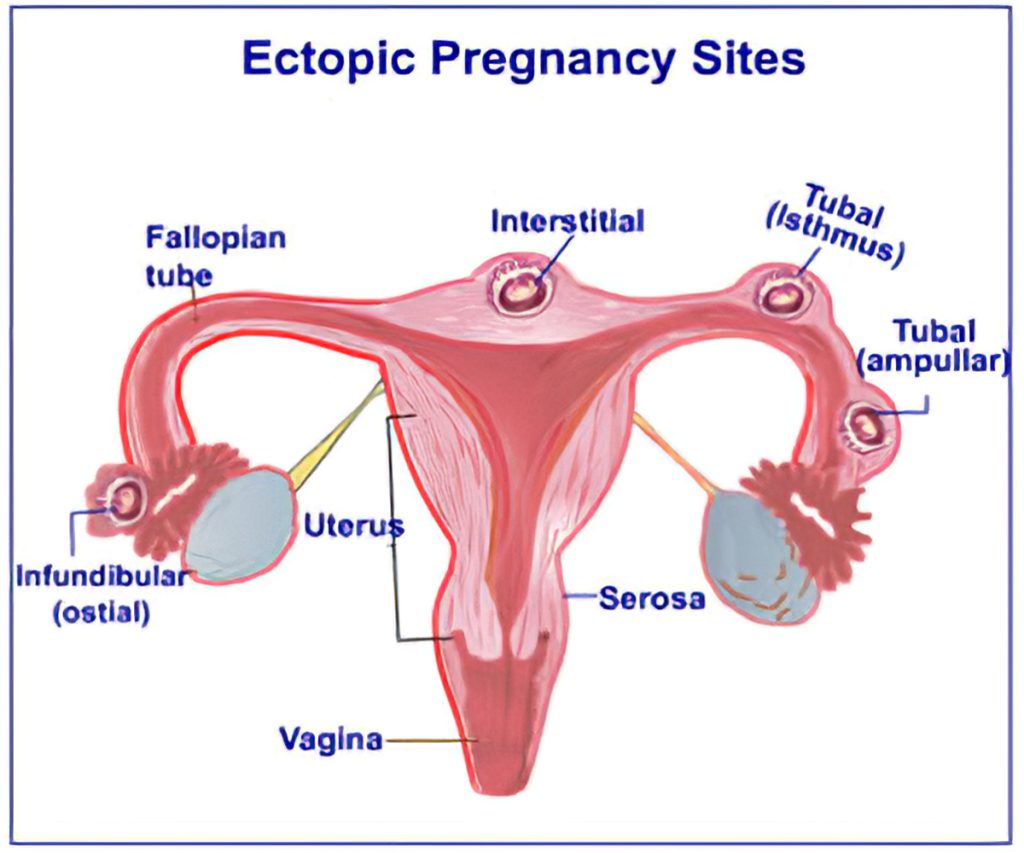
What is Ectopic Pregnancy?
Usually, fertilization happens in the fallopian tube, followed by the egg entering the uterine cavity, which has enough space for fetal development.
Nonetheless, there are cases when the egg doesn’t reach the uterine cavity, so it adheres to the walls outside it.
Ectopic pregnancy is any pregnancy that develops outside the uterus, usually in the fallopian tube.
Since it isn’t suitable for embryonic development outside the uterus, the chorionic villi penetrate the organ’s tissue and damage it, causing internal bleeding.
Ectopic pregnancy is common to some extent since it happens in 1 pregnancy out of 150 to 200 pregnancies.
Causes of Ectopic Pregnancy
There’s no particular cause of ectopic pregnancy, but there are several risk factors for ectopic pregnancy such as pelvic diseases, pelvic surgery, induction of ovulation, history of ectopic pregnancy, or problem with the fallopian tube.

Signs of Ectopic Pregnancy
In the early stages, an ectopic pregnancy is not different from a normal pregnancy that develops in the womb and may include symptoms such as nausea, sleepiness, increased appetite, enlargement, and tenderness of the mammary glands.
Adverse symptoms of ectopic symptoms usually start on the 3rd to 8th week after your last menstrual period.
The severe signs of ectopic pregnancy at 6 weeks may include the following
- Cramps in the lower abdomen on one side, and, in case of internal bleeding the pain can irradiate to the anus, epigastric region, and shoulders.
- Abdominal pain, which intensifies during bowel movements and coughing
- Bleeding or brown discharge
- Shock
- A large loss of blood can lead to loss of consciousness, pallor of the skin, cold sweat, decreased blood pressure, and frequent weak pulse.
How to Treat Ectopic Pregnancy
Ectopic pregnancy treatment has three goals
- To eliminate the embryo
- To eliminate the risk to the mother
- To keep the mother’s ability t have children
Diagnosis of Ectopic Pregnancy
Early diagnosis and modern medicine techniques make it possible to achieve these three goals.
It’s not difficult to detect an ectopic pregnancy by ultrasound when there are symptoms of shock, a positive pregnancy test, the absence of the egg in the uterus, and a large amount of fluid in the abdominal cavity.
In other cases, the diagnostic procedure is based on the level of the hCG hormone in the mother’s blood.
Ectopic Pregnancy Surgery
Treatment includes surgery or chemotherapy
Surgery is necessary in emergency cases with signs of internal bleeding. The procedure is called a laparoscopy.
A small incision is made in the navel for a laparoscope (a tiny microscope for the doctor to look inside).
Another incision is made in the lower abdomen for the surgical instruments to reach the fallopian tube.
This method s effective as it shortens the recovery time and hospital stay.
The chemotherapy is useful in the early stages, it terminates the development and resorbs the ovum.





